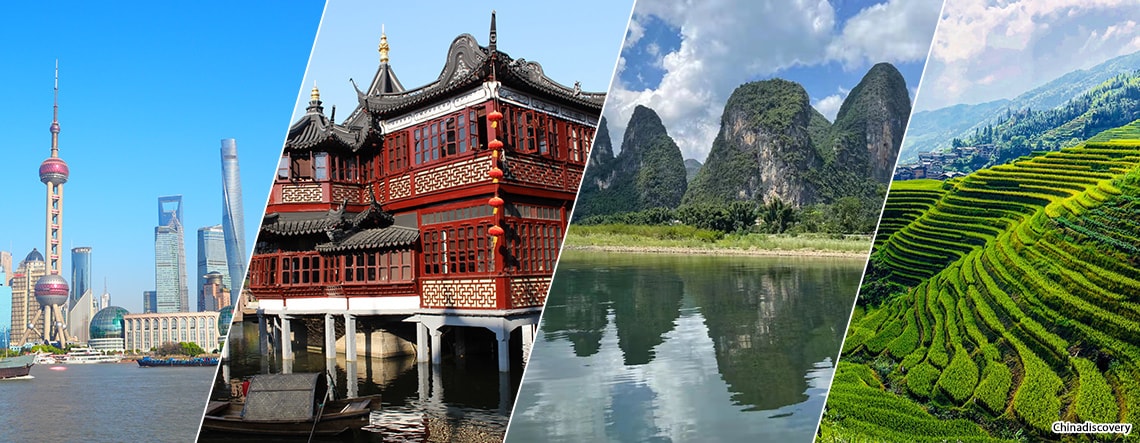20 Good Ideas To Taste the Best Dishes Across China
20 Good Ideas To Taste the Best Dishes Across China
Blog Article
Top 10 Tips To Bargaining Etiquette When Shopping In China
1. Offer between 50-70% below the price you were quoted Begin to negotiate. Show your seriousness by being firm, but respectful.
Pro Advantage: You can take your position and not cause offence to the seller.
Pros: Starting with a low price can frustrate sellers, especially when selling products with lower margins.
2. Find out the market value
Tip: Research the average price of the item in advance to ensure you don't overpay.
Pro: Gives you confidence and prevents scamming.
Con: Identifying products that are original or made by hand could take a significant amount of time, particularly for handcrafted goods.
3. Show Genuine Enthusiasm
Tips - Sellers are willing to bargain more if you demonstrate an interest in buying.
Pros: Improves your relationship and improves your chance of getting the deal.
A frenzied attitude may indicate a desire to spend more money, thereby compromising your standing.
4. You could walk away from the situation strategically
Tip: If the price does not fall, walk away slowly. You could get a call from the seller with a higher offer.
Pro The strategy is effective to get the lowest cost.
Cons: It can backfire in the event that the seller is unable to reduce the price of an item, especially if it's in high demand.
5. Learn Basic Mandarin Phrases
Tip: Phrases like "Tai gui le!" (Too expensive!) It's expensive! Try your best.
Pros: The negotiation is more personal. Sellers are usually more willing to negotiate.
Con: Using a limited vocabulary may be detrimental in more complicated negotiations.
6. Be calm and patient
Negotiations could take a long time. Maintain a calm demeanor to avoid appearing desperate.
The pros: Sellers typically offer better prices to buyers who are patient and calm.
Con: This takes lots of effort and time to be successful, especially if you are in crowded markets.
7. Bring Cash
If you pay with cash, sellers could be more inclined than usual to reduce their prices.
Pro: Cash offers made immediately can result in discounts, particularly with smaller sellers.
Con: Carrying large sums of cash can put you at risk in markets that are crowded with lots of people because of pickpockets.
8. Discounts on Group Reservations
Tips: If you are buying several products, you can request a discount price.
Pro: Increases your bargaining power and ensures more for your money overall.
Pro: It may need you to buy more items than necessary and these might not meet your needs.
9. Do not be afraid to Say No
Tips: If the seller won't lower the price, gently decline the offer and walk away.
Pros: You'll stay clear of guilt of a buyer and remain within the budget.
Con: You could be unable to get an item you've always desired.
10. Knowing When to Avoid Bargaining
Avoid bargaining in supermarkets, departmental stores and luxury stores.
Pro is that it maintains cultural sensitivity and helps avoid embarrassment.
Cons: You might not be able to negotiate with certain people.
Bargaining in China has its advantages
Savings: You can save money by negotiating the price.
Culture: Bargaining offers the chance to learn about local customs, traditions, and different cultures.
Personal Interaction Creates a Connection with Local Sellers
The Cons of Bargaining with Chinese
It takes a while to negotiate, especially when you're a beginner.
Language Barriers: Communication difficulties could arise even without a basic Mandarin.
For some, it can be stressful. There are some who do not like the back and forth of bargaining.
By mastering these tips, you'll navigate Chinese markets confidently and enjoy the art of haggling in your journey through Chinese culture! Take a look at the best start your journey to this site for site tips including shopping in xi an, weaponry of iron age iron cannon iron armour and warships, lion forest garden suzhou classical garden, naked marriage in china the most fashionable wedding style for the 1980s, entertainment in beijing, temple of confucius one of the three largest ancient architectural complexes, ancient dapeng fortress, the top 4 movies about kung fu and chinese culture, biking tours, chaotianmen dock%EF%BC%8C a major water transportation hub in chongqing and more.
Top 10 Tips To Follow When Visiting Temples That Are Famous In China During The Time Of The Year.
1. Visit during Off-Season(Autumn/Winter).Tip. You should consider visiting Chinese temples that are famous when the weather is cool (usually from November to February). It is the time when fewer tourists are present and the weather tends to be cooler.
Pro: A less crowded experience, which is more peaceful and contemplative.
Pros: The weather can be colder and this could make temple visits outside less comfortable.
2. Be prepared for extreme weather
Tip - Temperatures can change drastically in the different seasons. Temperatures can be very different across seasons. Be prepared.
Pro: If you're prepared for any weather situation You'll be comfortable during your trip.
Con: Having to pack for seasonal extremes is inconvenient if you travel light.
3. Visits to Vibrant Flora in Spring and Summer
Tips: Make sure to visit temples during the spring and summer for gorgeous gardens, flowering flowers, and lush scenery around temples.
Pros: Beautiful landscapes add to the overall experience of touring the temple grounds.
Con Cons: Summers in America can be very hot and packed. This is especially true on the national holidays.
4. Consider Festivals and Special Event
Make sure to plan your visit so that it coincides with festivals that are traditional, such as the Chinese New Year (January/February) as well as the Mid-Autumn Festival. These events let you participate in ceremonies, rituals and enjoy the rich tradition of the temple.
Pro: The temples typically have lively traditional celebrations and offer a the most unique, thrilling experience.
Con: Temples are packed, and hotel costs can increase during festival periods.
5. Beware of Peak Holiday Seasons
Tips: Avoid visiting during the high tourist season (e.g., Chinese New Year, Golden Week in October) where temples are overcrowded with both local and international visitors.
Pro: Enjoy a peaceful vacation without the crowds.
Con: You might miss out on some special festivals when they are at their highest.
6. Check for Temple Closures During the winter months.
A tip: Some temples could have limited hours, or even be closed during the winter months, particularly in more remote regions or in northern areas. Be sure to check ahead.
Avoid unnecessary trips by planning your trip in advance.
Con: Certain temples could have reduced hours or be entirely closed during improvements, which could lead to disappointment.
7. Early Morning Visits in Summer
Arrive early in the day to avoid the scorching heat of midday. Temples in many cities are open in the morning and evening, which means there are fewer people and less heat.
The cooler temperatures as well as the absence of crowds make for a more peaceful experience.
Con: Needs a early wake-up, which may not be suitable for all.
8. Be prepared for rain during the summer
It is possible to experience heavy rain in the summer months, especially in southern China. Bring an umbrella or rain gear if travelling during this period.
Pro: You can appreciate the temples' beauty even in the event of rain.
Cons: Rain may cause outdoor activities to be difficult and cause temple grounds be slippery.
9. Explore the Mountain Temples during the Autumn season.
Tips: Visit temples in the mountains like Mount Wutai (or Mount Emei) in autumn. The weather is pleasant and the autumn foliage makes for a stunning scene.
Pros: The cool temperatures allow to enjoy more comfort while hiking or exploring the outdoors, and you can enjoy stunning views.
Con A: Mountain temples that are popular can still draw crowds, particularly during holidays or weekends.
10. Be aware of the Lunar Calendar when planning specific activities
TIP: Many temples, specifically in China adhere to the lunar calendar. That means some events and rituals include a lunar date. It is crucial to verify the calendar in order to be able to attend important celebrations, like the Lantern Festival, Buddha’s Birthday or other temple celebrations.
Pros: Discover distinct traditional practices of culture and gain more insights into local spiritual traditions.
Cons The lunar calendar can make you plan your trip with more care and could not be in sync with events occurring at the time.
Pros of Seasonal Visits to Chinese Temples
Less crowds at the entrance: Visits during the off-season are quieter and more reflective.
Cultural Events: Festivals offer an understanding of the local beliefs and culture.
Scenic Beauty. Spring or Autumn will provide stunning scenery. The lush gardens surrounding temples can also be a good option.
Cooler Weather: Autumn and winter are the best times to go temple exploration.
Cons of Seasonal Visits to Chinese Temples
Unpredictable weather: Winter could be extremely cold, and the summer too hot. This can affect your ease of living.
Temple Closures: A few of the temples have restricted hours of operation or are shut in extreme weather conditions or off-season.
At popular festivals can bring large numbers of people. This makes it difficult for you to fully appreciate the temple’s tranquil ambience.
Certain events are restricted - certain ceremonies and events are only held during certain seasons.
Pick the best time to visit China's most renowned temples and plan accordingly. This will ensure you have a memorable experience. Understanding the dynamics of the seasons is crucial to making the most out of every excursion. Check out the best check out this iconic site for blog tips including popular beijing night markets, basha miao village, shopping in kashgar, ancient dapeng fortress, some gifts from china, shanghais winter wonderland festivals lights and fun, chinese knot which has a long history and a symbolic meaning, jiuzhaigou, the origin and history of the mysterious chinese dragon, eating in fuzhou and more.